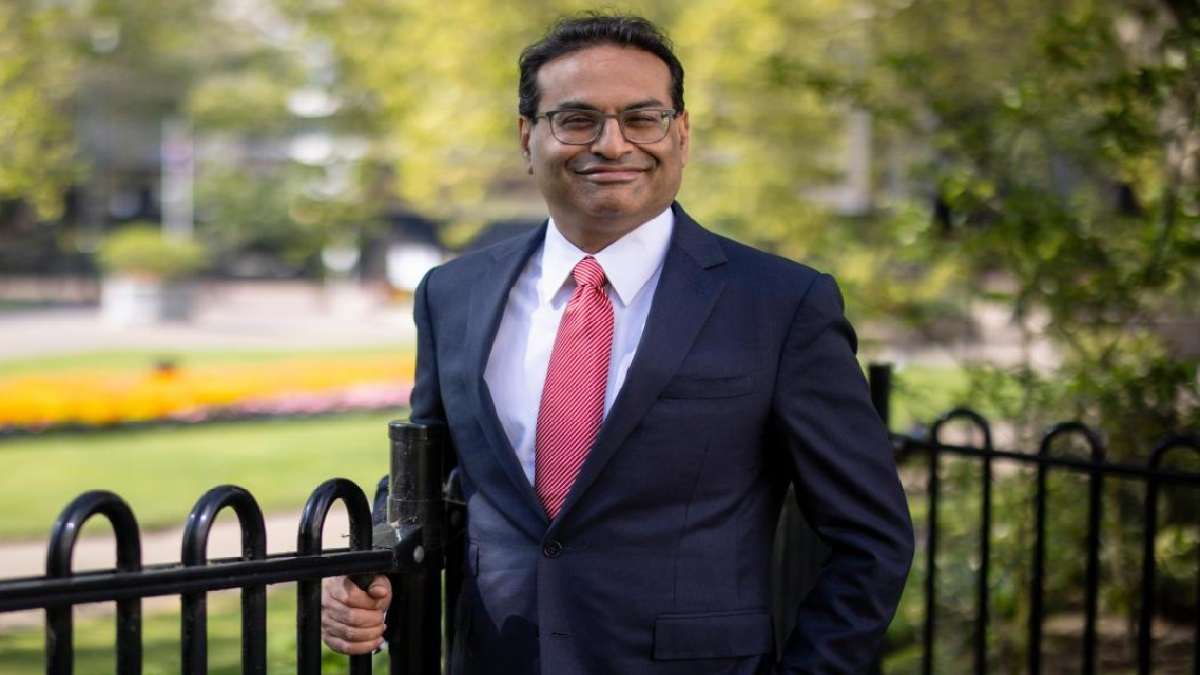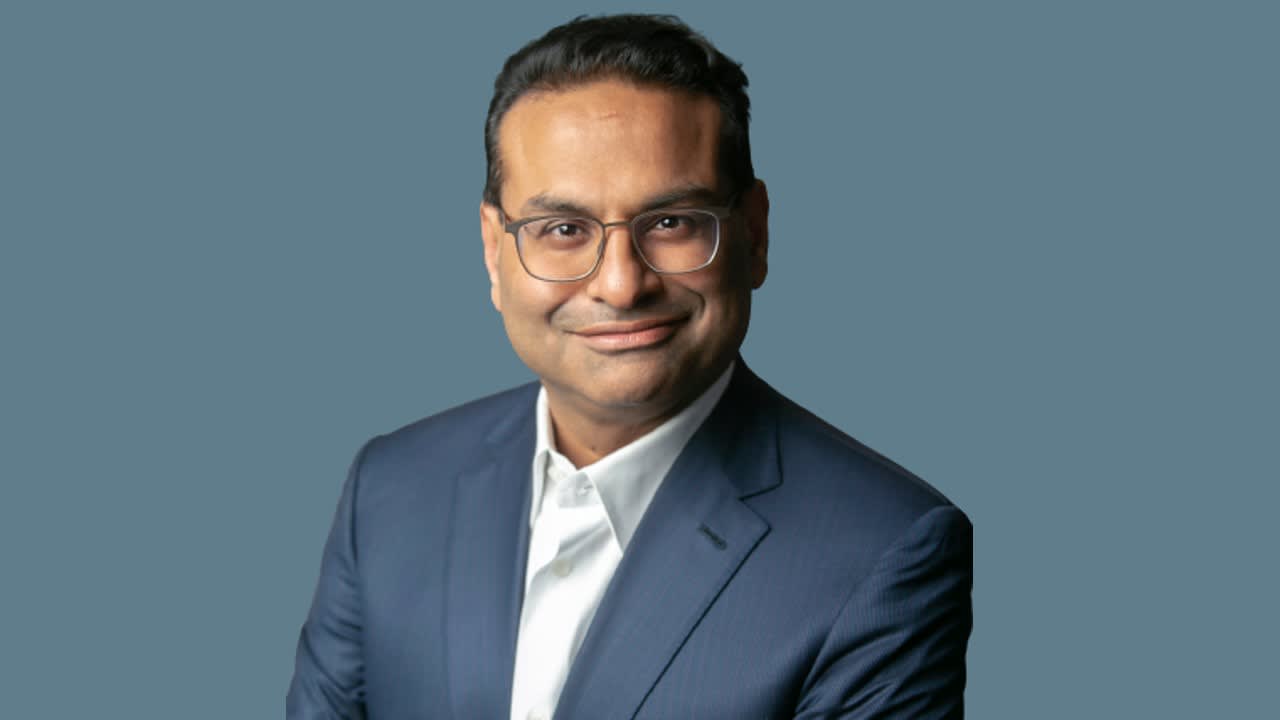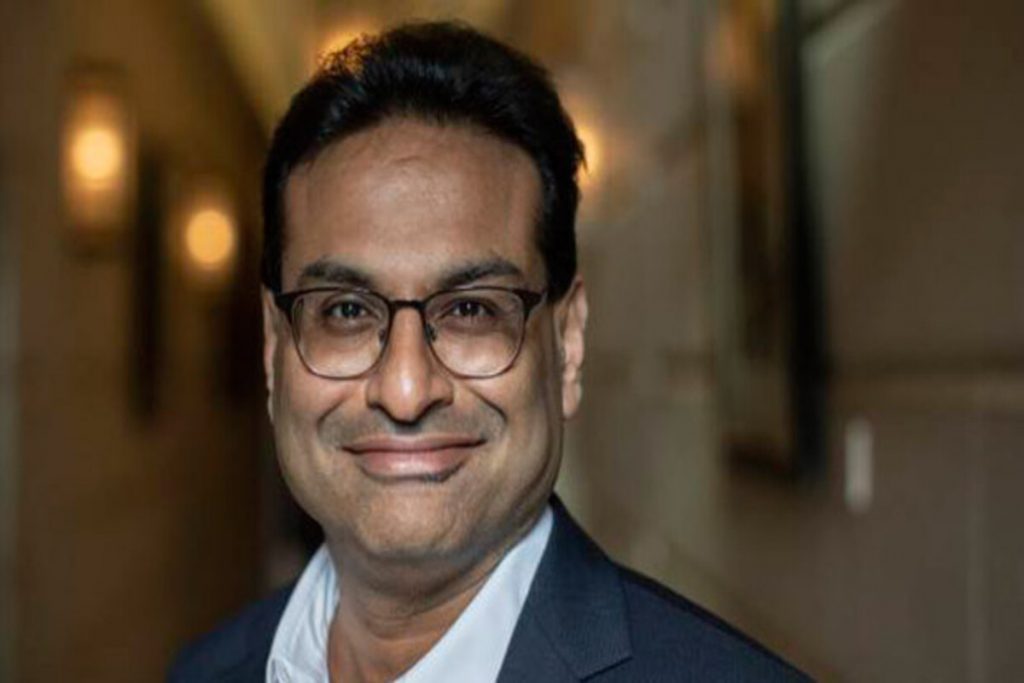Laxman Narasimhan’s Career Journey: Ceo Laxman Narasimhan

Laxman Narasimhan, the current CEO of Starbucks, brings a wealth of experience in the consumer goods industry, particularly in the realm of food and beverage. His career trajectory has been marked by a series of strategic leadership roles, culminating in his appointment as the head of one of the world’s most recognizable coffee brands.
Key Roles and Achievements, Ceo laxman narasimhan
Narasimhan’s professional journey began at McKinsey & Company, where he honed his consulting skills and gained insights into diverse industries. He later transitioned to PepsiCo, where he spent over a decade holding progressively senior positions. His time at PepsiCo proved instrumental in shaping his leadership style and expertise in consumer goods.
- At PepsiCo, Narasimhan served as the Global Chief Commercial Officer, overseeing the company’s global sales and marketing strategies. This role provided him with invaluable experience in navigating complex global markets and driving growth through innovative initiatives.
- He also held the position of Chairman of PepsiCo’s Latin America, Middle East, and Africa region, demonstrating his ability to lead across diverse cultures and geographies.
- During his tenure at PepsiCo, Narasimhan played a key role in the development and execution of the company’s “Performance with Purpose” strategy, which aimed to balance financial performance with social and environmental responsibility. This experience underscores his commitment to sustainability and corporate social responsibility, values that are increasingly important in the business world.
Experience in the Consumer Goods Industry
Narasimhan’s experience at PepsiCo provides a solid foundation for his leadership at Starbucks. His understanding of the consumer goods industry, particularly in the food and beverage sector, equips him to navigate the challenges and opportunities facing Starbucks. His focus on innovation, strategic partnerships, and customer-centricity aligns well with Starbucks’ commitment to delivering exceptional coffee experiences.
Leadership Style
Narasimhan’s leadership style is characterized by a data-driven approach, strategic thinking, and a focus on building strong relationships. He is known for his collaborative leadership, encouraging open communication and seeking input from diverse perspectives. His experience in global markets has instilled in him a deep understanding of cultural nuances and the importance of adapting strategies to local contexts.
“I believe that the best leaders are those who are able to inspire and empower their teams to achieve great things. It’s about creating a culture of trust, collaboration, and accountability.” – Laxman Narasimhan
Comparison with Predecessors
Narasimhan’s leadership style is distinct from his predecessors at Starbucks. While Howard Schultz, the company’s founder, was known for his charismatic and visionary leadership, Narasimhan brings a more analytical and data-driven approach. Kevin Johnson, who preceded Narasimhan, focused on operational efficiency and digital innovation. Narasimhan’s leadership combines these elements, emphasizing both strategic vision and operational excellence.
Narasimhan’s Vision for Starbucks

Laxman Narasimhan, upon assuming the CEO role in April 2023, Artikeld a clear vision for Starbucks, emphasizing growth, innovation, and customer experience. His strategic goals aim to revitalize the coffee giant, navigating the evolving consumer landscape and maintaining its position as a global leader.
Growth Strategies
Narasimhan’s vision prioritizes sustainable and profitable growth. This involves expanding Starbucks’ presence in both existing and new markets. Key initiatives include:
- Global Expansion: Starbucks aims to increase its footprint in emerging markets, particularly in Asia and Africa. This expansion strategy leverages the growing middle class and increasing demand for premium coffee experiences in these regions.
- Digital Transformation: Narasimhan recognizes the importance of digital channels in driving growth. He aims to enhance the Starbucks mobile app, enabling seamless ordering, payment, and personalized experiences. This includes features like mobile ordering, loyalty programs, and personalized recommendations.
- New Product Development: Starbucks is committed to introducing new products and expanding its offerings beyond coffee. This includes expanding its food menu, introducing new beverages, and exploring innovative product categories like plant-based alternatives.
Innovation and Technology
Narasimhan believes that innovation and technology are crucial for maintaining Starbucks’ competitive edge. He emphasizes investing in:
- Digital Innovation: Starbucks is investing in artificial intelligence (AI) and machine learning to personalize customer experiences, optimize operations, and improve efficiency.
- Sustainable Practices: Starbucks is committed to sustainability and reducing its environmental impact. This includes initiatives like reducing waste, sourcing ethically, and promoting responsible coffee production.
- Store Design and Experience: Starbucks is investing in modernizing its store designs and enhancing the customer experience. This includes creating inviting spaces, incorporating digital elements, and offering personalized services.
Customer Experience
Narasimhan’s vision places a strong emphasis on delivering exceptional customer experiences. He believes that Starbucks must create a warm and welcoming environment that fosters customer loyalty. Key initiatives include:
- Personalized Experiences: Starbucks aims to personalize customer interactions through data-driven insights. This includes offering tailored recommendations, customized beverages, and personalized rewards programs.
- Employee Empowerment: Narasimhan recognizes the importance of empowering employees to deliver exceptional customer service. This includes investing in training and development programs, fostering a positive work environment, and recognizing employee contributions.
- Community Engagement: Starbucks is committed to being a good neighbor and contributing to the communities it serves. This includes supporting local businesses, sponsoring community events, and investing in social initiatives.
Challenges and Opportunities for Starbucks

Starbucks, a global coffee giant, faces a dynamic market environment with both challenges and opportunities. The company must navigate competitive pressures, economic uncertainties, and evolving consumer preferences while capitalizing on growth opportunities in new markets, product innovation, and technological advancements.
Competition in the Coffee Industry
The coffee industry is highly competitive, with numerous established players and emerging brands vying for market share. Starbucks faces competition from both traditional coffee chains like Dunkin’ Donuts and Peet’s Coffee, as well as specialty coffee shops, independent roasters, and convenience stores offering coffee options. The company must differentiate itself through its brand, product offerings, and customer experience to maintain its market leadership.
- Global Competition: Starbucks competes with international coffee chains like Costa Coffee (UK) and Caffè Nero (UK), as well as local coffee shops in various markets.
- Emerging Coffee Trends: The rise of third-wave coffee culture, emphasizing high-quality beans, brewing methods, and artisanal coffee experiences, presents a challenge for Starbucks.
- Convenience and Accessibility: Consumers increasingly seek convenience, with options like single-serve coffee pods and mobile ordering apps challenging Starbucks’ traditional model.
Economic Uncertainty and Consumer Spending
Economic fluctuations, including inflation and recessionary pressures, can impact consumer spending habits. Starbucks must adapt its pricing strategies and product offerings to cater to changing consumer budgets.
- Inflationary Pressures: Rising costs for raw materials, labor, and rent can impact Starbucks’ profitability and potentially lead to price increases.
- Consumer Discretionary Spending: Economic uncertainty can lead consumers to cut back on non-essential spending, including coffee shop visits.
- Value-Oriented Consumers: Starbucks must cater to consumers seeking value for their money, offering affordable options or promotions.
Evolving Consumer Preferences
Consumer preferences are constantly evolving, influenced by factors such as health consciousness, sustainability, and ethical sourcing. Starbucks must adapt its offerings and messaging to align with these trends.
- Health and Wellness: Consumers are increasingly interested in healthier beverage options, including plant-based milk alternatives and lower-sugar choices.
- Sustainability and Ethical Sourcing: Consumers are demanding transparency and ethical practices from companies, including sustainable sourcing of coffee beans and environmental initiatives.
- Personalized Experiences: Consumers expect personalized experiences, including customized orders, loyalty programs, and mobile ordering options.
Opportunities for Growth
Despite challenges, Starbucks has several opportunities for growth and expansion.
- Expanding into New Markets: Starbucks can continue to expand its global footprint, targeting emerging markets with growing middle classes and a demand for coffee.
- Developing Innovative Products: Starbucks can innovate its product offerings, introducing new beverages, food items, and seasonal specials to attract and retain customers.
- Leveraging Technology: Starbucks can leverage technology to enhance the customer experience, streamline operations, and improve efficiency.
Ceo laxman narasimhan – Laxman Narasimhan, the CEO of Chipotle Mexican Grill, is steering the company through a period of rapid growth and innovation. His leadership is evident in the company’s strong financial performance, which is reflected in the rising value of cmg stock.
Narasimhan’s vision for Chipotle’s future is one of sustainability, ethical sourcing, and a commitment to serving delicious, responsibly-sourced food.
Laxman Narasimhan, the current CEO of Starbucks, embodies a modern-day archetype of leadership. His journey to the helm of this global coffee giant is a testament to his strategic brilliance and unwavering dedication. As he navigates the complex world of business, it’s natural to wonder about the financial success that accompanies his role, which can be explored in detail by examining his laxman narasimhan net worth.
Beyond the numbers, however, Narasimhan’s true impact lies in his ability to inspire and empower, creating a ripple effect that extends far beyond the boardroom and into the lives of countless individuals.
